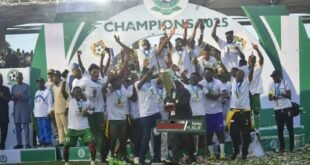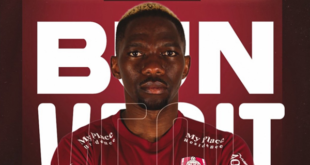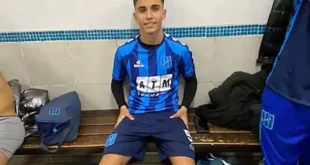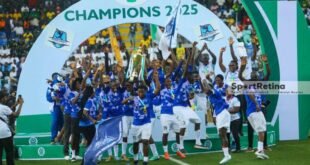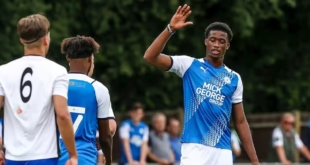Less than a month before the start of the 2025 African Cup of Nations (AFCON) qualifiers, the Super Eagles find themselves in a worrying situation, still without a coach.
The countdown is just 25 days away, and yet the Nigeria Football Federation (NFF) appears stuck in the same cycle of administrative inertia that has plagued it for years.
This recurring scenario is more than a matter of time: it reflects a deep-rooted problem in Nigerian sports management.
The NFF’s failure to act decisively is not only frustrating but detrimental to the future of Nigerian football.
A history of administrative failures
There’s a saying that rings particularly true here: “Failing to plan is planning to fail.”
Sadly, this is not the first time the NFF has found itself in this precarious situation. The saddest thing? They have chosen to ignore the lessons of previous disasters.
Take the most recent World Cup qualifiers for example, where former coach Finidi George was appointed just a month before two crucial matches against South Africa and Benin Republic, a decision that was doomed from the start.
Despite knowing that José Peseiro’s contract would end after the AFCON tournament, no preparations were made for his departure.
The result? A disastrous campaign that left Nigeria’s hopes of qualifying in limbo.
This lack of planning has become a worrying trend that leads to repeated cycles of chaos and underperformance.
A national shame
Former Nigeria international Sam Sodje, who recently spoke on Brila Media, did not hold back in his criticism of the NFF, calling the current situation “a disgrace to Nigerian football.”
“It’s sad that we’re still talking about a coach and there’s nothing we can say. Not only football, but also sports in the country have declined a lot. I think football is something we have to acknowledge that we’ve lost touch with,” Sodje said.
“Not having a coach at the moment is terrible. But, as we have to play, having an interim coach could be the best idea, but it has to be done as soon as possible.”
A broader problem in Nigerian sport
The problems affecting the Super Eagles are symptomatic of a wider problem in Nigerian sports.
The recently concluded 2024 Olympic Games serve as another clear example.
Nigeria failed to win a single medal, despite sending its largest contingent of athletes – 88 in total.
This was the first time since 2012 that Nigeria returned from the Olympics empty-handed, raising serious questions about the country’s direction in sports.
A race against time
Although names such as Steve McClaren, Hervé Renard and Eric Chelle have emerged as possible candidates for the Super Eagles job, as of yet, there is no resolution in sight.
The upcoming qualifiers for next year’s continental finals are crucial for the players as they offer them a chance to build confidence ahead of the 2026 World Cup qualifying campaign, where Nigeria’s hopes of qualifying are fading. Winning the remaining six matches is now imperative.
The Super Eagles will once again face familiar opponents in the AFCON qualifiers, Benin Republic and Rwanda, the same teams they will also face next year in World Cup qualifiers; this could be a blessing in disguise.
A win against these opponents could significantly boost his confidence and give the team a new stage as a coach, which will be essential to secure a place in the 2026 World Cup playoffs, at least.
Missing two consecutive World Cups would be a blow to Nigeria’s status as an African football powerhouse.
The clock is ticking
As matches against Benin Republic and Rwanda approach, pressure is mounting on the NFF to select a capable coach who can lead the team to success.
The prospect of appointing an interim coach seems likely, but it is not a long-term solution.
All eyes are on the NFF and the nation is waiting with bated breath to see who takes the reins as head coach of the Super Eagles ahead of AFCON 2025.
 JamzNG Latest News, Gist, Entertainment in Nigeria
JamzNG Latest News, Gist, Entertainment in Nigeria




